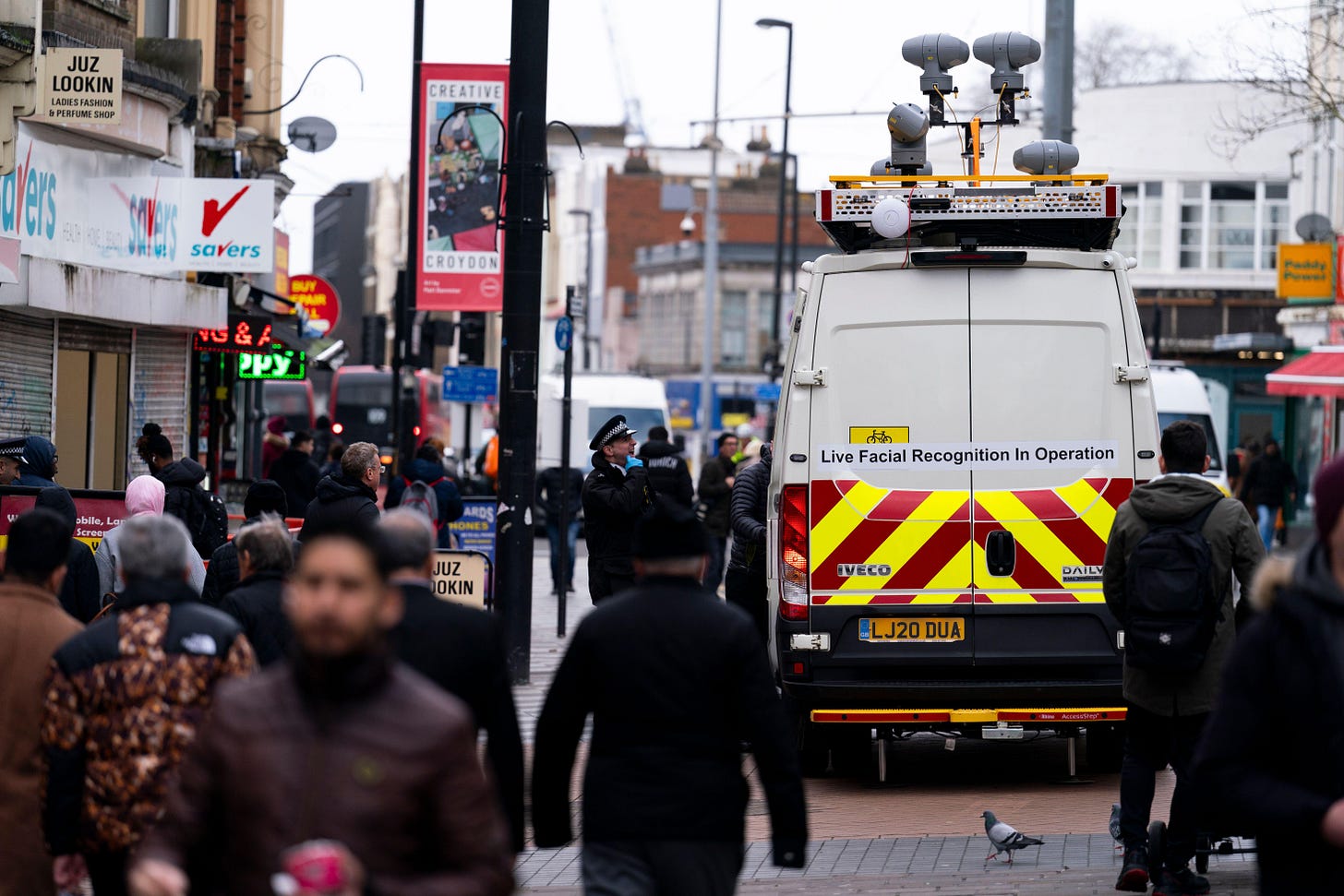1,000,000 faces scanned: Inside London's facial recognition surge
For police, it's the biggest breakthrough since DNA. But critics fear mission creep and a lack of oversight
Afternoon — the Met Police’s facial recognition programme has hit a major milestone: more than 1,000,000 faces scanned across London. That cumulative figure was revealed late on Friday, when the force published its latest deployment records. Someone walking past the cameras on a police van at the Westfield Stratford this Thursday had the honour of being the millionth.
But what the chart above also shows is just how much the Met’s use of the tech has accelerated this year. Live Facial Recognition (LFR), as it’s referred to by police, was first trialed in the capital in 2016, and involves cameras hooked up to software checking to see if passersby match any of the faces in a predetermined watchlist. Senior figures at the Met have described the technology as the biggest breakthrough for crime detection since DNA or fingerprints.
But the surge in LFR in London has alarmed campaigners, who say the technology still has critical flaws, lacks democratic oversight and is putting the capital on the path to widespread surveillance. Local leaders and rights groups have told the Spy:
The technology is still misidentifying innocent Londoners, who must spend time proving to officers they are not the offender the software says they are. In some cases, misidentified people have been put in handcuffs before they've proved their innocence.
Facial recognition is being used by the Met for purposes other than catching serious and violent criminals who pose a risk to the public. This includes a person stopped by a facial recognition team in Hackney who had missed appearances in court on copyright charges.
Met officers have treated noncompliance with facial recognition vans as itself suspicious. In Croydon, a person was searched after officers noticed him attempting to avoid walking past the cameras. They were found to be in possession of drugs.
Despite concern about the technology's potential for racial bias, the Met has so far concentrated its deployment of LFR in London's most diverse areas. In particular Croydon, which has seen the most deployments of any borough this year.
Local community representatives who oppose the use of police facial recognition in their areas are being ignored by the Met. The force has also been criticised for failing to give adequate notice or information about the use of LFR to communities.
In response, the Met Police's director of intelligence, Lindsey Chiswick, who is leading the force’s LFR operation, told the Spy the technology is “making London safer”. She also said the Met is “identifying offenders with better data”, works “very closely with stakeholders and the community” and is seeing “strong support” for LFR.
A spokesperson for the mayor of London told us technology like LFR is “vital in supporting the Met Police's work in tackling crime and keeping people safe” but that “it is equally important that technology is deployed proportionately, lawfully, and ethically in order to retain the trust of all Londoners”. They also said the Met is “transparent about where, when and how it is used”.
The full story behind London's facial recognition surge is below.
FYI: We’ll be publishing your weekly round-up on Monday rather than tomorrow, so we could get this investigation over the line.
Investigation: How the Met scanned 1,000,000 faces in London
This summer, opposition to police facial recognition in east London reached the very top of the local political chain. Behind closed doors, the leadership at Newham council had tried to persuade the Met Police to abort its upcoming deployments of the technology. When that failed, as a seeming last resort, the council decided to go public. "The deployment of this technology in public spaces infringes upon the privacy of our residents, subjecting them to surveillance without their consent," said Amar Virdee, the council's cabinet member for community safety and crime in a statement issued on July 19. "This level of intrusion erodes the trust between the community and the law enforcement agencies tasked with protecting it". But that too wouldn't matter.
Keep reading with a 7-day free trial
Subscribe to London Spy to keep reading this post and get 7 days of free access to the full post archives.



